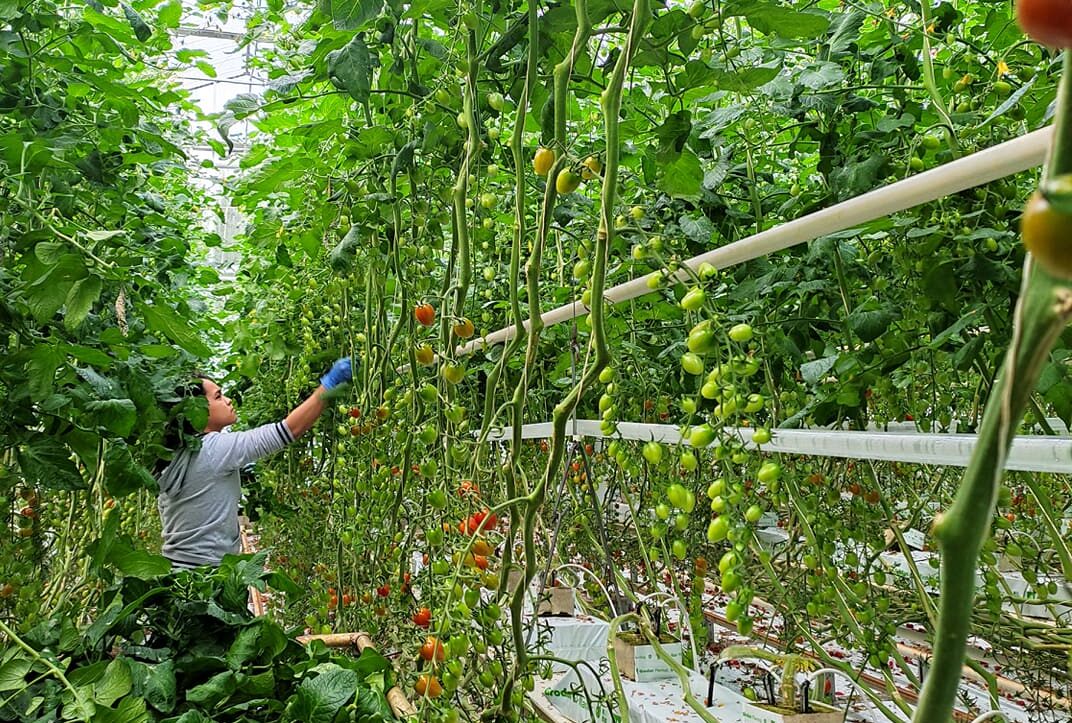
Labour market situation in Norway is being controlled by two authorities. NAV (the Norwegian Labour and Welfare Authority) and Statistics Norway (SSB).
NAV uses a standard which states that the number of fully unemployed includes everyone who applies for a NAV income-generating job and has not had an income-generating job in the last 2 weeks and is open for work.
Statistics Norway (SSB) measures unemployment as a percentage of the labour force (ages 15 to 74). The headcount (January 2022) is 4,060,606 people. The employment rate was 69.3 percent.
The population of Norway in 2022 was 5 425 270.
General unemployment in Norway is quite low. And it keeps lowering (in 2021 unemployment rate was 3.2%, and in 2022 it is already just 2%).
Unemployment has not been this low since the 2008 financial crisis. At the same time, the number of vacancies is at an all-time high. In other words, competition between employers for the labor force is high, and there is also a significant mismatch between the skills required and the skills available for hiring. Still, the labour market of Norway keeps evolving and changing both in positive and negative ways. On the one hand, there are a lot of offers, on the other hand expectations of skills are growing unproportionally. In some regions, there are enough jobs to potentially bring unemployment to zero, and still have a surplus of vacancies, in condition of match between required and offered skills. This leads to a current situation, when employers receive a huge number of “irrelevant” applications and struggle to find a worker that is able to satisfy a request.
Like the entire labour market, the agricultural sector has undergone numerous changes in recent decades. Work has increasingly become a skilled activity requiring special training and knowledge (also to reduce the risk of occupational accidents, especially among the youngest and most inexperienced), such as handling vehicles or agricultural equipment.
The country has made efforts to integrate new agricultural technologies to improve the sector’s efficiency and increase land productivity. The high costs and low profits of agricultural production are the major internal inhibitors of Norway’s agriculture sector. They are also the primary factor restricting the growth of farmers’ income and leading to shrinking of the labour force in agriculture.
Right now, there is a big request for seasonal works in horticulture.
This is a way out for many local farmers, who are harvesting during specific periods of the year. Seasonal works are very attractive for overseas workers since they can match their yearly activities and possibility to work in Norway. Usually, they are getting 37.5 working hours per week and can stay for up to 6 months. Room and board are often provided by the host farm. Most positions are offered for the summer season from May to September.
No prior experience or specific qualifications are required; however, every farmer will prioritize a worker with previous experience.
There is also a need for specialists in the livestock sector as well. Some regions especially are struggling finding local workforce, since farms are situated far away from big cities, and workers simply don’t want to move to get a job. Many educated specialists are looking for possibilities to get new professional qualifications in other sectors, since they cannot find a comfortable workplace within agriculture. This leads to a huge issue, when farms cannot find employees and must stop their professional activities.
Therefore, Norway shows a growing interest for overseas workers, since they usually have an international experience, education that matches initial farmers’ requests, and they are ready to work, on condition that accommodation will be provided on a farm or close to it. This resolves two main problems that farmers are facing at the moment- issue with skills and relocation.
Many overseas workers are coming from third world countries, and they are willing to stay in Norway, since the salary rate is very attractive to them, and a possibility to live within the premises gives them extra opportunity to save up. Resuming the current situation, we can expect the growth of interest of overseas workers in Norway.
| Cookie |
|---|
| cookielawinfo-checkbox-analytics |
| cookielawinfo-checkbox-functional |
| cookielawinfo-checkbox-necessary |
| cookielawinfo-checkbox-others |
| cookielawinfo-checkbox-performance |
| viewed_cookie_policy |
| Cookie | Typ | Dauer | Beschreibung |
|---|---|---|---|
| cookielawinfo-checkbox-analytics | 0 | 11 months | Denne cookie er angivet af GDPR Cookie Consent plugin. Cookien bruges til at gemme brugerens samtykke til cookies i kategorien "Analytics". |
| cookielawinfo-checkbox-functional | 0 | 11 months | Cookien er indstillet af GDPR -cookie -samtykke til at registrere brugerens samtykke til cookies i kategorien "Funktionel". |
| cookielawinfo-checkbox-necessary | 0 | 11 months | Denne cookie er angivet af GDPR Cookie Consent plugin. Cookien bruges til at gemme brugerens samtykke til cookies i kategorien "Analytics". |
| cookielawinfo-checkbox-others | 0 | 11 months | Denne cookie er angivet af GDPR Cookie Consent plugin. Cookien bruges til at gemme brugerens samtykke til cookies i kategorien "Andet. |
| cookielawinfo-checkbox-performance | 0 | 11 months | Denne cookie er angivet af GDPR Cookie Consent plugin. Cookien bruges til at gemme brugerens samtykke til cookies i kategorien "Ydelse". |
| viewed_cookie_policy | 0 | 11 months | Cookien er angivet af GDPR Cookie Consent plugin og bruges til at gemme, om brugeren har givet samtykke til brugen af cookies eller ej. Det gemmer ingen personlige data. |